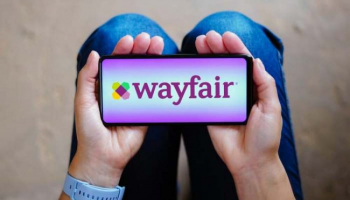
With online sports betting exploding in the Land of Lincoln you would think that expanding the online gaming options to include casino gambling just makes sense. But will the Illinois lawmakers go down that road? Let’s take a look at where they have been and where they are now as we try to answer the question: Will Illinois Also Legalize Online Gambling?
In The Beginning…
It was in June of 2019 when the state of Illinois legalized online sports betting. It resulted from the Illinois Gaming Act of 2019 but the document did not address online casino gambling. However, there are countless social casino sites online where state gamblers can go and get their fill on their favorite table games and slot machines. Because social casino gaming sites are free, and players do not need to spend money at the games – nor will they win any money, these sites are considered legal. The other alternative is offshore casinos where you can play for money, make deposits, and get the feel of real casino action. These sites are illegal for Illinois residents to participate in, but many do anyway although there are risks involved. Probably the greatest risk of playing on an offshore casino site is having deposited an amount of money for betting and discovering the next day that the casino site had shut down. The odds of getting your money back are slim to none.
So let’s go back for a moment. Online sports betting in Illinois is legal. The first legal brick-and-mortar sportsbook to open in the state does so in March 2020. Three months later, the first legal mobile/online sportsbook opens. Since then six more brick-and-mortar and four more online sportsbooks get licensed and open up shop in the state. Bettors throughout Illinois embrace the new form of legal gambling and participate in ways that were never imagined. Sure, the state government knew there would be an interest, but to give you an idea of what kind of interest there is, the monthly handle for August 2020 was $139,643,887 – the largest to date. That’s just five months after the first legal brick-and-mortar sportsbook opened and two months after the first online sportsbook opened. Think there’s an interest in online sports betting? You bet there is. Oh, and it bears to be mentioned that the state tax on sportsbook operators is 15% so that’s a tidy stream of income.
Blame It On The Pandemic
If you need a target to lay blame for the supposedly shaky start to online sports betting in the state, all you have to do is point to COVID-19. The coronavirus didn’t commonly become called a pandemic until days after the first legal brick-and-mortar sportsbook opened in Illinois. That moment in history was soon followed by closures of all public facilities across the state including casinos. The unexpected plot twist called COVID-19 actually did the online sportsbooks a huge favor. By people staying home in self-isolation, they needed something to do to keep from going nuts at home and many turned to online sports betting. Following a couple of missteps by state Governor J B Pritzker, the lines were opened to permit Illinois residents the opportunity to register their online sports betting account via the internet. The deadline to complete this task has already been extended into October giving state taxpayers a reason to stay home and gamble although casinos have reopened (with restrictions).
What Will Happen Next?
“IGaming still is an untapped market in Illinois,” says Tom Swoik, a state government lobbyist for the Illinois Casino Gaming Association. He states that internet gaming (online casinos) are operating in other states such as New Jersey and that the online gaming activity has not had a very significant negative impact on brick-and-mortar casinos. Or at least not the level of impact as most people may have expected. Swoik points to data from New Jersey to back up his argument. While casinos were closed due to the pandemic in April 2020 in New Jersey, that state saw almost $80-million in revenue generated with $74.8-million coming from online casinos and $5.15-million generated from online poker. Those figures are nearly double the amount collected a year before and Swoik says indicates that people are comfortable with betting online. He also says the land-based casinos in New Jersey have since seen increases in player counts because online casinos introduced them to playing and many have chosen to take those skills to real physical betting tables and slot machines. Swoik says of Illinois, “If we had iGaming when all the casinos had to shut down (for the pandemic), that not only would have helped in industry, but it would have helped the state out with tax collections, too.” Remember, Illinois has a 15% tax on sportsbook operators.
Expansion Has Happened
The state recognizes that revenues from legal betting are a reliable stream of income. That has been proven by the expansion bill of June 2019 that resulted in six new casinos opening, slot machines and table games at race tracks, and an increase in gaming terminals. Sports betting also came out of that expansion plan. Can online casinos be far off? According to Swoik, it may not even be part of discussions at the government level until January 2021. Beyond that, it is anyone’s guess when full online gaming will be legalized. “It’s going to be a tough sell,” Swoik says. “Everybody’s looking to see what’s going to happen.” He does think that the drop in revenues experienced due to the pandemic may be the catalyst to push the government into a recovery plan. Swoik looks at iGaming as being part of the solution that gets the state back on its feet. One thing is for sure, the online gaming infrastructure is already in place, which should make the addition a lot easier than starting from scratch. But until that day when online casinos burst onto the scene in Illinois, there are social casino sites and sports betting to keep players occupied and hopeful.









